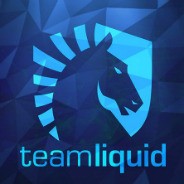Task 1 Reading
The Great North Run is one of the UK`s most popular sporting events. It is the biggest and best-known half-marathon in the world. Around fifty thousand competitors sign up to take part in the Great North Run every September, and run the thirteen miles between Newcastle upon Tyne and South Shields. Around one hundred thousand friends and family members line the roads to watch the race, and cheer the runners on from the sidelines.
The first Great North Run was held in 1981, to help raise money for charities and other worthy causes. The race has evolved over the years from a small, low key event to become one of the most popular road running events in the sporting calendar, and the most famous competition of its kind in the world.
A lot of people enjoy running, and men and women of all ages compete in the race to help raise money for their favourite charity. Most ordinary people who enter the race are pleased if they just manage to finish it, but for some athletes the competition is a serious business and they are out to win it! Many well-known celebrities also sign up to take part in the race and raise money for good causes.
Running road races can be exhausting, and amateur runners often find them challenging. Not all runners who enter the race manage to go the full distance and complete it, and there are always some who fall by the wayside. Ambulances are kept on standby in case any runners need any medical attention, and bottled water is provided for competitors to keep them hydrated in various stops along the way. Around two hundred and fifty thousand (a quarter of a million) bottles of
water are handed out during the race along, with a thousand or more additional drinks handed out at the start and finish!
Read the text again and decide if the following statements are true (T), false (F) or not given (NG).
1. The Great North Run is a small, low key event.
2. Professional athletes and amateur runners compete in the race.
3. Some people who take part don`t complete the race.
4. Bottles are recycled after water is finished
1. If ... rich, I would traаvel around the world. а) was; b) were; c ) wоula be;B d) will ьe 2. We would have left yesterday а) didn't snow; b) wаsn't snowin8: с) hadn't snowed; 3. Wegot used to ... our own food when we had tolivealone, d) had snowed. а) соoking: b) соok: с) being соoked; d) coob 4. When I was young I used to ... for our family а) соoking: b) соok; с) being соoked3B d) cooked 5. I ... drink coffee than tea. a) had better: b) wоuld rather; с) had rather: d) . better 6. John... to class yesterday than today. а) would rather go; b) wоuld rather have gone; с) wonla rather had gone; d) would rather went. 7. "... you ... to dance with me?" a) Should, have;B b) Would, mind; с) Do, want; d) Woula, ike. 8. John would rather that his girlfriend... the same times he does. a) studies;B b) study; с ) studied; d) have studied. 9. We wish that they ... yesterday. а) сате; b) had come;B с) иere coming: d) have come. 10. We hope that they .. yesterday. а) сате;B b) had come; с) еre coming: d) have come 11.I don't feel like... out today. а) going: b) g0; с ) I wеnt; d)'l go. 12. If I... 100 dollars in the street, I would keер 1t. a) have found; b) will find; c) find; d) found. 13. Тom would be angry.. I didn't visit him. a) when; b) if: с) unless; d) as if.
14. He wishes he ... her name. know; b) had known; c) knew; d) had been knowing. E She ... get a job more easily if she.. type. ) could, could; 6) can, can; c) could, can; d) can, could. 16. If I ... you when you passed me in the street, I would have said hello. a) saw; b) have seen; c) could see; d) had seen. 17. I feel sick. I wish I... so much. A) hadn't eaten; b) hadn't ate; c) didn't eat; d) haven't ate. 18. Jim wears two watches... one of them .... a) unless, stops; b) in case, will stop; c) in case, stops; d) in se, stop. 19. "Can you give it to her ... you see her?" 4) if:b) providing; c) in case; d) when. 20. "Can you take it with you... you see her?" a)if: b) providing; c) in case; d) when. 21.If we had known that you were there, we... you a letter. a) would have written; b) wrote; c) would write; d) had written.
220
484
Ответы на вопрос:
Реши свою проблему, спроси otvet5GPT
-
Быстро
Мгновенный ответ на твой вопрос -
Точно
Бот обладает знаниями во всех сферах -
Бесплатно
Задай вопрос и получи ответ бесплатно

Популярно: Английский язык
-
Use your answer to write jim s story for the school s english magazine (60-80...
 zachar305.03.2021 05:41
zachar305.03.2021 05:41 -
Soswrite a review of a gym you have visited lastly эссе...
 anzhelabrosg07.01.2020 19:37
anzhelabrosg07.01.2020 19:37 -
составить краткий пересказ 5-6 предложений Вот по этому тексту Losing friends...
 alina06726.11.2020 19:21
alina06726.11.2020 19:21 -
и объясните в каком случае пишем will а в каком won’t...
 LUKARIN17.06.2020 09:06
LUKARIN17.06.2020 09:06 -
Suzy / before / won / a trophy расставить правильно слова...
 sofya1508198708.02.2022 00:43
sofya1508198708.02.2022 00:43 -
2 * Write the words in the correct order to make questions. 4 5 1 Lisa / does...
 nikita500001111127.06.2023 08:20
nikita500001111127.06.2023 08:20 -
Complete the sentences. Use Would ... like or ‘d like 1. I a cup of coffee, please....
 Alla22109.04.2023 03:04
Alla22109.04.2023 03:04 -
Как переводится предложение мой друг любит играть в настольные игры ...
 6Мицуки605.06.2021 16:40
6Мицуки605.06.2021 16:40 -
Work in groups. Imagine you are designing a new town. Use the ideas below to...
 ЛалKа22829.04.2020 12:24
ЛалKа22829.04.2020 12:24 -
Просклонять предложение,в пассивном залоге(to be+v3(ed) Every Day I wake up thinking...
 glupostsroghdeniy12.02.2022 04:55
glupostsroghdeniy12.02.2022 04:55

Есть вопросы?
-
Как otvet5GPT работает?
otvet5GPT использует большую языковую модель вместе с базой данных GPT для обеспечения высококачественных образовательных результатов. otvet5GPT действует как доступный академический ресурс вне класса. -
Сколько это стоит?
Проект находиться на стадии тестирования и все услуги бесплатны. -
Могу ли я использовать otvet5GPT в школе?
Конечно! Нейросеть может помочь вам делать конспекты лекций, придумывать идеи в классе и многое другое! -
В чем отличия от ChatGPT?
otvet5GPT черпает академические источники из собственной базы данных и предназначен специально для студентов. otvet5GPT также адаптируется к вашему стилю письма, предоставляя ряд образовательных инструментов, предназначенных для улучшения обучения.
